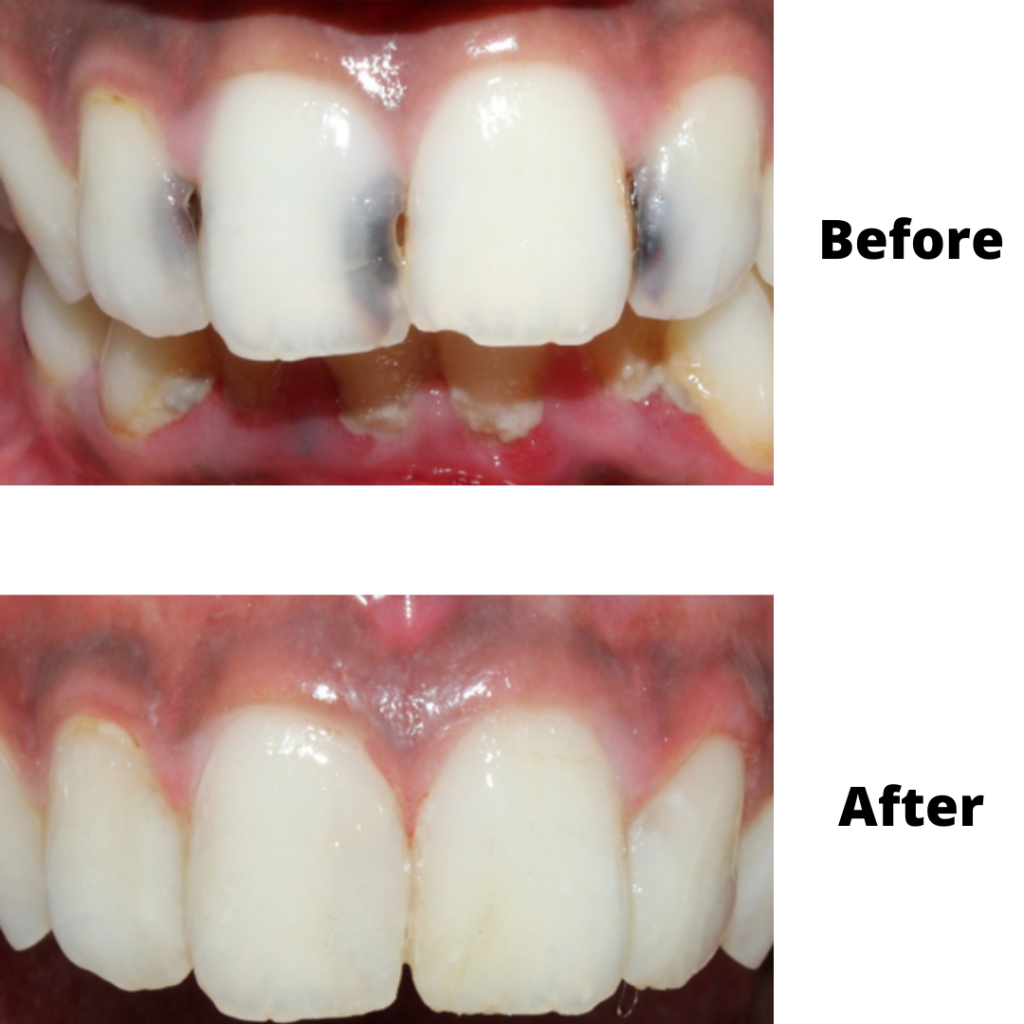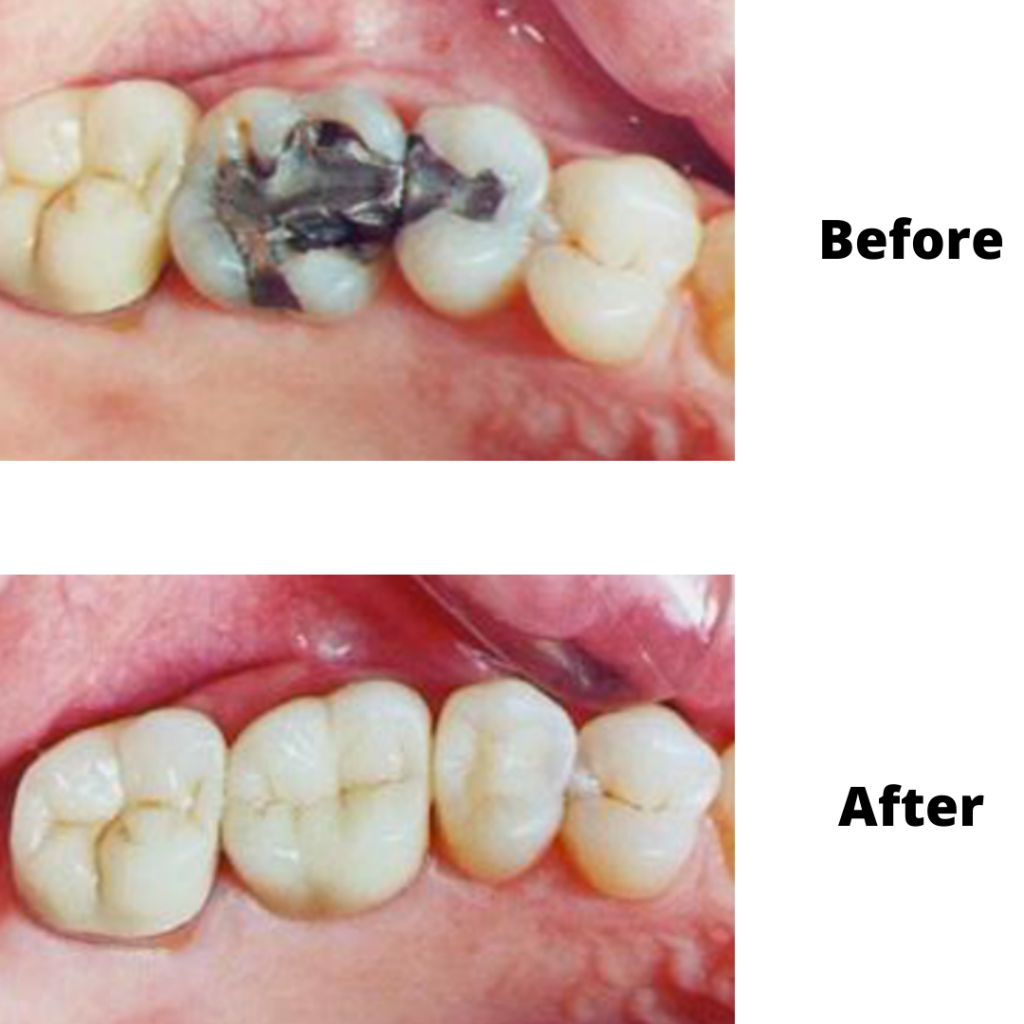WHAT IS A DENTAL FILLING?
Dental fillings are necessary in order to restore missing tooth structure caused by decay, when replacing old defective fillings, or when replacing tooth structure that has chipped or broken off. The two types of filling materials used in dentistry today are composite resin (tooth-colored) and amalgam (silver) fillings. Both types have their pros and cons and the decision to use either material depends on each patient’s specific case.
Composite tooth-colored fillings bond to actual tooth structure and can be used on any tooth in the mouth. Most patients prefer composite fillings due to aesthetic reasons which is understandable. These types of fillings are almost always used on front teeth. The benefits of composite fillings are that they aesthetic and bond to the tooth. The downsides are that they are far more technique sensitive to place and tend not to last as long as silver fillings especially on the posterior molar teeth.
Amalgam (silver) fillings have been around for decades and are very strong. Silver fillings are typically used on the teeth furthest in the back of the mouth because of their durability and are less technique sensitive to place on hard-to-reach teeth. Unfortunately, they are silver colored and do not blend in with natural tooth color as composite fillings do.
BEFORE & AFTER PICTURE GALLERY
1. A Composite Filling – In the case of a chipped tooth

2. ANTERIOR DECAY

3. SILVER FILLINGS REPLACED WITH COMPOSITE

WHAT ARE SOME INDICATIONS FOR A DENTAL FILLING?
Dental fillings can be required for a variety of reasons. Here are some symptoms that may occur:
- A tooth that has a hole in it
- Dark spots on the teeth
- Food stuck to certain spots between your teeth
- Chipped or broken teeth
- Sensitivity to foods and drinks that are hot and cold
- Single or multiple cavities
If you experience any of the symptoms listed above, then you may need a filling. After a thorough oral examination, your dentist will inform you and help make the final decision.
Dental-RI provides dental services for all aspects of general dentistry and prosthodontics. Our dental office is a mother-and-son operation located in Cranston, RI. We opened in the Fall of 2020.
Our general dentistry services include cleanings, digital x-rays, fillings, porcelain crowns, implant crowns, complete and partial dentures, teeth whitening, and much more. Additionally, we specialize in prosthodontic dentistry, including full mouth rehabilitation and other complex cases.
WHAT IS THE DENTAL FILLING PROCEDURE?
If your tooth is decayed, a dental filling procedure is usually necessary. This procedure will remove the decay and restore the missing tooth structure.
The first step of this process is to determine the severity of the decay. X-rays and a thorough examination will determine which surfaces of the tooth are affected.
Local anesthesia is then administered to the tooth to remove sensation temporarily. A dental drill and carbide bur are used to excavate the decay and soft tooth structure until the affected surfaces are as hard as glass. A filling is then placed to restore the tooth back to its normal shape and size.
DENTAL FILLINGS: THE RESULTS OF NOT GETTING THEM DONE
Cavities in their early stages are usually not noticeable to a patient because they are not deep enough to trigger nerve pain. This is the best time to have the fillings done because minimal drilling is necessary and the fillings will be smaller. Some patients prefer to wait until the tooth bothers them before doing a filling which can be detrimental for many reasons. Waiting to do a filling will cause the cavity to grow larger. As it grows larger, more tooth structure will need to be removed which results in a larger filling. Larger fillings cause the teeth to become prone to sensitivity, fractures, and sometimes root cracks. Delaying a filling may also cause the decay to grow into the nerve of the tooth leading to an infection. When the nerve is infected, the tooth may require a root canal or in some cases, extractions.
POST-TREATMENT CARE FOR DENTAL FILLING
It is important to avoid any hot foods or liquids until the local anesthesia has worn off. Composite fillings are fully set and cured after you leave your appointment however amalgam fillings require 24 hours of hardening. For amalgam fillings, avoid that tooth for a few hours and avoid sticky or hard foods until the next day.
Post-op sensitivity is very common after fillings, and especially for white composite fillings. This sensitivity is temporary and will last only for a few weeks. Sensitivity toothpastes may help with this when used regularly.
